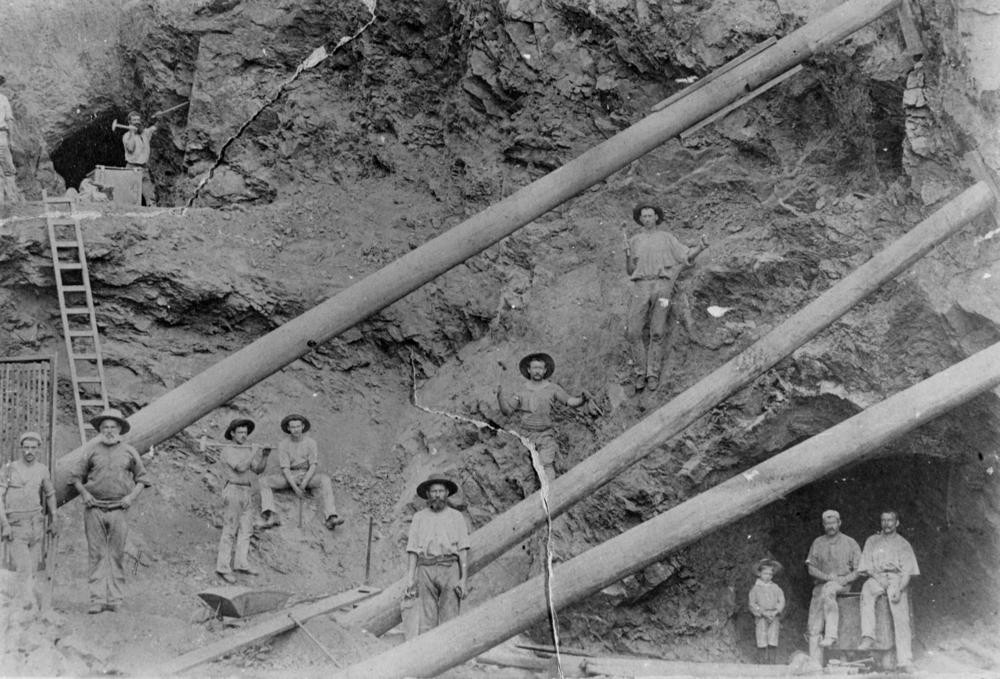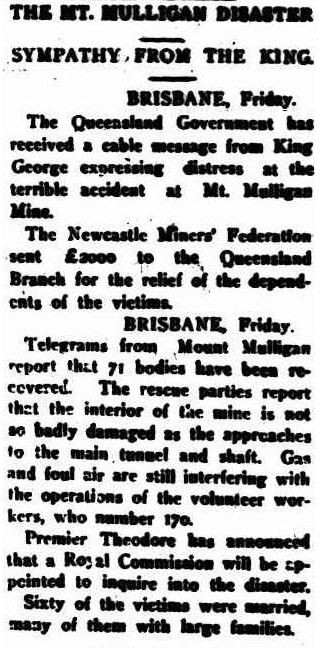The late 19th and early 20th century mining boom in Queensland forged communities and made the fortune of many, yet it played out in harsh, remote locations, in mostly perilous conditions, and left many casualties in its wake. Long before today’s enthusiasm for workplace health and safety, accidents were commonplace and varied, from bruises and broken bones to massive, unimaginable episodes such as the Mount Mulligan mining disaster of 1921 which left 75 dead.

Bismuth mine and miners in the Biggenden region, ca. 1890
An example from 1899 concerns a miner by the name of John Dillon, who died from being ‘poisoned’ at the Helena mine in the Cawarral district. The comments stated: “Killed. Drank from the cyanide tank in mistake for water, and died in an hour”.
Although the entries in the index are quite brief, the matter-of-fact summaries of events and injuries speak volumes about the brutal nature of many of these accidents and of working in the mines generally. Some manage to be quite harrowing in the space of 1-2 concise sentences.
The index provides an invaluable resource not only to family historians, but to anyone researching mining and industrial history and local histories. These records also serve as a starting point to further investigating these incidents and those involved, with many of the more serious incidents being widely reported in newspapers which are available online through Trove. The Mt. Mulligan mining disaster is one example which was reported extensively in newspapers across Australia, as seen in this article reporting a cable message of distress from King George.

Above all, the index provides a fascinating insight into the extreme conditions of one of Queensland’s founding industries.
Search the Mining Accidents Index
More information about mining accidents
Reuben Hillier - Collection Access, State Library of Queensland
Comments
Your email address will not be published.
We welcome relevant, respectful comments.